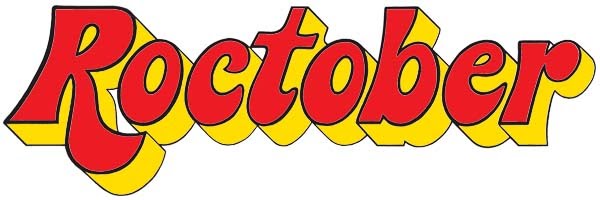GUEST REVIEW by
Gary Pig Gold Nowadays, it seems anyone and everyone with easy access to velcro sideburns and a karaoke machine are busy making livings (of a sort) out of playing at Elvis Aaron Presley.
After all, Mojo Nixon was right: Elvis
Is Everywhere.
But retrospective credit is definitely due director John Carpenter and dick clark productions for getting there fastest, and first: Even before the autopsy was cold, they were readying their “Elvis” for his home screen resurrection during prime time, February of 1979.
The vehicle? An ambitious, yet quite reverent (especially in view of subsequent bio-pics) made-for-TV motion picture starring Kurt Russell in that title role of a lifetime. And to watch this particular Elvis again today, newly available from the fine folk over at Shout! Factory, is to be reminded just how larger-than-life The King had already become as the Seventies ended and the deification was only about to begin.
Indeed, the original, uncut Elvis tele-film, freshly packaged alongside some revelatory bonus footage (including a real gem from the Dick Clark vaults: a Summer of ’64 Beatle-battling tribute to the King from American Bandstand) makes for a surprisingly entertaining, and sometimes even thought-provoking two hours of music, mayhem and, as is often hinted, pure madness. Yes, it’s the story of a simple man blessed with unusual talents and drive who, armed only with his wits and a twelve-dollar guitar, aspired to little more than moving his beloved parents out of the Memphis projects and into a comparatively better life.
Of course, what transpired over the next ten years Elvis in even his wildest adolescent dreams could hardly have imagined.
Under Carpenter’s direction, this still-improbable tale is told with an unusual eye for detail and a true sense of middle-1950s America, with its music and its morals struggling to break free. More remarkable still, Elvis succeeds in conveying just how one most unlikely young man came to embody this entire socio-musical upheaval, and how it eventually swallowed and, yes, broke him (although the film’s narrative ends with Elvis’ return to the concert stage in 1969, it often foreshadows the dispiriting tragedy that was the man’s final five years. No small feat for a medium-budget production undertaken without access to the decades of Presley study and research that was yet to be undertaken).
Pedigree is present as well – perhaps that is why its subject matter is treated with such accuracy and respect throughout – as the cast of Elvis features two actual Memphis Mafia, Larry Geller and Charlie Hodge. Much screen time as well is devoted to the Elvis of Sun Records, where during the years 1954/1955 he and his raw-diamond accompanists Scotty Moore and Bill Black just so happened to change the course of musical history under the ever-watchful ears of producer Sam Phillips. This is a key era of Presley’s development which is much too often ignored for flashier and/or seemlier events in most retrospective recreations of the man, cinematic and otherwise.
Keen observers will also spot in the role of Elvis’ first drummer D.J. Fontana no less than original Spinal Tap sticksman Ed Begley Jr. And while we’re trivially speaking, lest we forget that Kurt Russell’s very first-ever motion picture appearance was at the tender age of eleven, attacking the real Elvis’ shins in 1963’s It Happened At The World’s Fair. So there!
Interesting as well to see the role of Elvis’ long-suffering daddy Vernon played by Kurt’s real-life father Bing (!), and to realize within weeks of the ABC-TV premier of Elvis Kurt up and married Season Hubley, who portrayed his on-screen wife Priscilla!! And keeping things as familialy dysfunctional as possible, the great Shelley Winters is brilliantly cast as Elvis’ closer-than-close mother Gladys, a role she plays throughout Elvis with a verve not seen since her star turn throughout Wild In The Streets.
But it is truly the 27-year-old Kurt who excels, more than ably filling gigantic shoes and faltering only occasionally during some of the key musical numbers. Not that he should be blamed, however: Russell makes as good a hillbilly cat as can really be expected from a former Disney kid who looks as if he spent his formative years listening to far too many Fabian records. Yet purely dramatically speaking, he portrays the King with a respect and, believe it or not, sly subtlety which has been sorrowfully lacking in most every subsequent way-over-the-top Presley portrayal.
To be truthful, I was personally surprised at just how well Elvis stands up, musically, historically, and purely cinematically, amidst the three decades – and insurmountable flood of Presley “tributes” – which have followed. So then I do suggest you watch it today, and watch it often (followed, if you dare, with Allan Arkush’s Elvis Meets Nixon, to pick the story up where Carpenter and Russel leave off).
Then, of course, pull out all the old RCA and especially Sun tracks that you can, and marvel anew at the real thing as well, don’t forget.



No comments:
Post a Comment